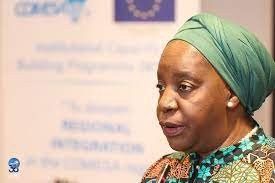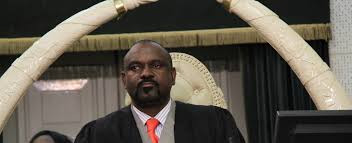TEACHERS have called on government to urgently review their salaries to US$1 260 to cushion them against the high cost of living.
For the better part of 2020 to date, government and teachers have fought endless battles over salary issues.
All along, they have been demanding US$540 or its equivalent in local currency.
During a salary crisis indaba on Wednesday in Harare, which sought to interrogate challenges faced by education sector employees, a resolution was made that the employer should increase teachers salaries to US$1 260.
Amalgamated Rural Teachers Union of Zimbabwe president Obert Masaraure told NewsDay: “We have never at any point demanded luxuries, but just the basics, food, school fees for our children, healthcare, clothing, transport to and from work, accommodation, electricity and water. Our list excludes basics like internet, savings and entertainment,” he said.
“If we were to prepare a bill to give (Finance minister) Mthuli Ncube, we could come up with a figure way above the US$540 we have all along been clamouring for. Our bill to Mthuli amounts to US$1 260. How much is Mthuli paying us — a gross total of US$200? For Mthuli, the housing allowance is just US$7,50 and transport for a whole month is worth US$7,50. In short, Mthuli wants us to walk to work and live in caves.”
Keep Reading
- Schools closure fuel drug abuse
- Riding roughshod on restive workers will backfire Mr President
- Schools closure fuel drug abuse
- Riding roughshod on restive workers will backfire Mr President
Progressive Teachers Union of Zimbabwe president Takavafira Zhou said: “Government must return us to where we were and then we will start lobbying for better salaries after earning the US$540.”
Teachers Association of Zimbabwe secretary-general Goodwill Taderera said a US$1 200 salary was reasonable.
“Our last paper at the National Joint Negotiating Council was demanding for a US$840 wage. In terms of a demand for a thousand plus salary, our members could be right. However, from a rational and argumentative position, the entry point should be at least US$840,” Taderera said.
Zimbabwe Confederation of Public Sector Trade Unions president Cecilia Alexander said “unions were justified in their quest to demand US$1 260 considering the high cost of living in the country”.
Primary and Secondary Education ministry spokesperson Taungana Ndoro referred all questions about salary issues to the Public Service Commission (PSC).
Efforts to get a comment from PSC secretary Simon Masanga were fruitless as his phone was not reachable.
Recently, the World Bank adjudged Zimbabwe as having the highest food inflation rate globally, which now stands at 285%.
Prices of basic foodstuffs and other commodities have soared beyond the reach of many at a time when most workers’ earnings are in the local currency.





